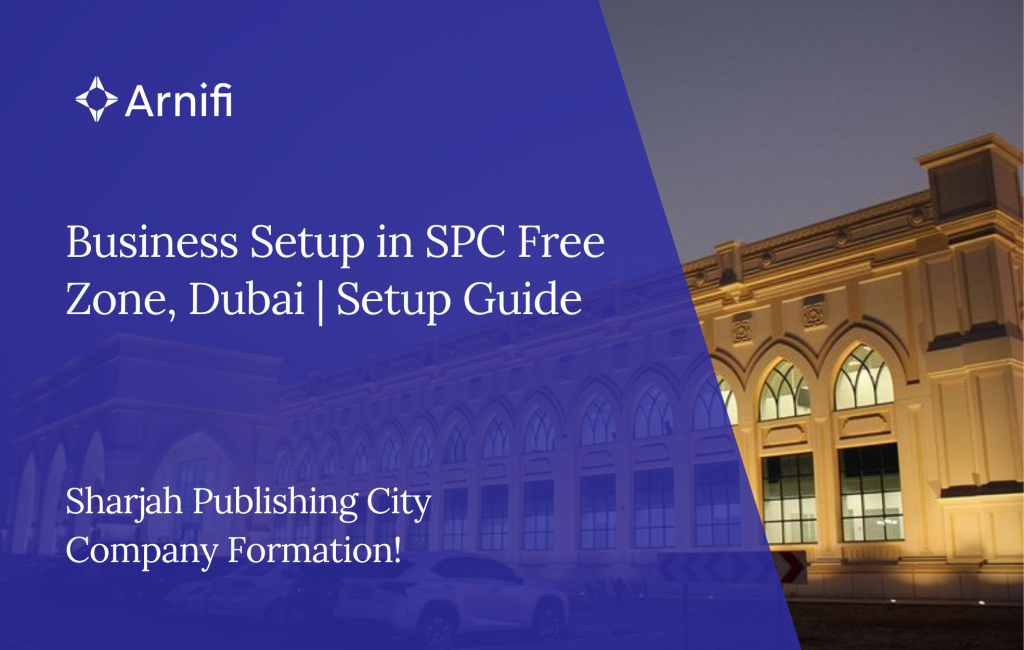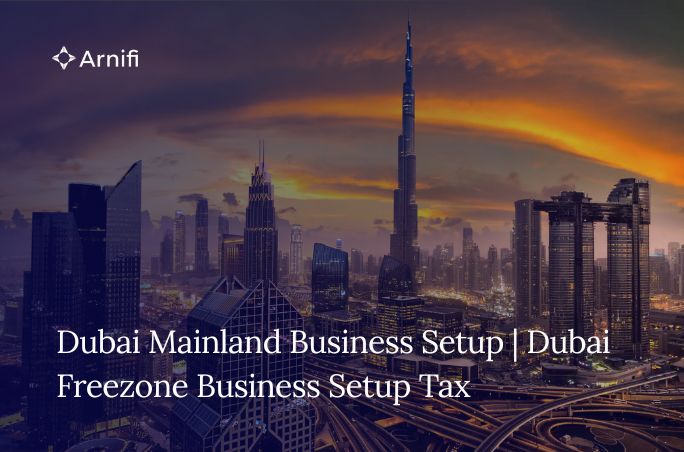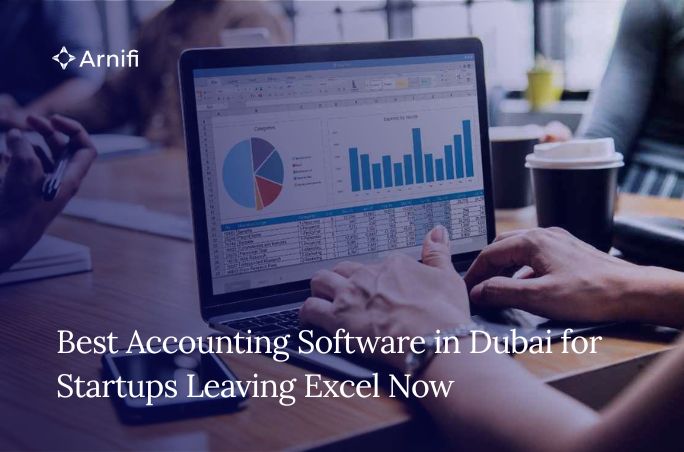How to Business Setup in Sharjah Publishing City (SPC) Free Zone, Dubai UAE?
by
Shethana
May 20, 2025  8 MIN READ
8 MIN READ

Dubai continues to reinforce its status as a global business hub. For entrepreneurs looking to establish a low cost business setup in Dubai, the Sharjah Publishing City (SPC) Free Zone stands out as a flexible, strategic, and cost-effective solution—especially for those interested in creative, tech, and knowledge-driven sectors.
This comprehensive guide covers everything you need to know about business setup in SPC Free Zone Dubai, including licensing, costs, compliance, and marketing. Whether you’re an e-commerce entrepreneur, launching a healthcare business setup in Dubai, or exploring Web3 business setup in Dubai, SPC Free Zone offers versatile opportunities.
Table of contents
- Why Choose SPC Free Zone for Business Setup?
- Types of Businesses You Can Start in SPC Free Zone
- Legal Structures and Requirements
- Step-by-Step: How to Setup Business in Dubai SPC Free Zone
- Business Setup Cost in Dubai SPC Free Zone
- Key Benefits of SPC Free Zone Business Setup
- Operations and Growth Considerations
- Marketing Your SPC-Based Business
- Challenges and Risks
- Conclusion
Why Choose SPC Free Zone for Business Setup?
Business setup consultants in Dubai often recommend SPC due to its:
- Strategic location: Situated in Sharjah but close to Dubai International Airport and Port Khalid—ideal for import export business in Dubai.
- 100% foreign ownership and full profit repatriation.
- Zero corporate and personal income tax, making it suitable for small business setup in Dubai.
- Tailored license packages ideal for ecommerce business setup in Dubai, digital content creators, and consultants.
Businesses like real estate, restaurant business setup in Dubai, and trading business setup in Dubai have also found success due to the Free Zone’s flexible licensing structure.
Types of Businesses You Can Start in SPC Free Zone
SPC is a haven for various sectors:
- Publishing and Printing
- Media Production and Broadcasting – Ideal for business setup in Dubai Media City alternatives.
- E-commerce and Web3 – Perfect for digital-first companies, including those exploring artificial intelligence (AI) business setup in Dubai.
- Consulting Firms – From technical services business setup in Dubai to healthcare business setup in Dubai.
- Education and Wellness – Great for startups from India and other regions seeking business setup in Dubai from India.
Even niche industries like scrap metal, jewellery, perfume business setup in Dubai, or car rental business can be registered here.
To help with global business expansion
make sure you choose us.
Get in touch with our team to find out about our approach
Response within 24 Hours
Great, please give us a brief detail about your business.
Legal Structures and Requirements
Business Structure Options:
- Free Zone Establishment (FZE) – Single-owner business.
- Free Zone Company (FZCO) – Multiple shareholders.
- Branch Office – For expanding existing businesses.
License Types:
- E-Commerce License – For online retail or online clothing business in Dubai.
- Service License – For consultants, advisors, and freelancers.
- Commercial & General Trading License – Ideal for new business setup in Dubai and multi-product traders.
Required Documents:
- Passport copies
- Proof of address
- Emirates ID (if applicable)
- Business Plan
- MOA
Office Setup & Compliance:
- Coworking desks, private offices, and warehouses available.
- Ideal for restaurant and cafeteria business setup in Dubai, manufacturing business setup in Dubai, and even dental clinic setup.
For specialized zones, like Dubai Healthcare City, Dubai Silicon Oasis, or Dubai Design District, SPC offers a competitive, cost-effective alternative.
Step-by-Step: How to Setup Business in Dubai SPC Free Zone
- Choose Your Business Activity – Ensure it aligns with your goals (e.g., sole proprietorship business setup in Dubai).
- Apply for Registration – Via the SPC Free Zone online portal.
- Get Your License – And official incorporation certificate.
- Lease Office Space – From a flexi desk to private offices or warehouse.
- Apply for Visas – Sponsor employees or dependents.
- Open a Business Bank Account – Many UAE banks offer digital onboarding.
Business Setup Cost in Dubai SPC Free Zone
- License Fees: AED 5,750–AED 15,000/year
- Coworking Desks: ~AED 4,000/year
- Private Office: AED 10,000–20,000/year
- Visa Fees: AED 3,000–5,000/visa
- Other Costs: Registration, Emirates ID, insurance, and notarization.
To help with global business expansion
make sure you choose us.
Get in touch with our team to find out about our approach
Response within 24 Hours
Great, please give us a brief detail about your business.
For those comparing business setup in Dubai mainland cost, SPC Free Zone offers a more affordable, flexible setup—especially suitable for new business setup consultants in Dubai and startups.
Key Benefits of SPC Free Zone Business Setup
- 100% Foreign Ownership
- Tax-Free on personal and corporate income
- Full Profit Repatriation
- Visa Flexibility for employees and family
- Global Market Access via nearby seaports and airports
- Fast Setup compared to business setup in Dubai Mainland
SPC also rivals hubs like DMCC Dubai, Meydan, and Business Bay with its scalable infrastructure and support for entrepreneurs.
To help with global business expansion
make sure you choose us.
Get in touch with our team to find out about our approach
Response within 24 Hours
Great, please give us a brief detail about your business.
Operations and Growth Considerations
- Use tools like CRM, accounting software, and digital payment gateways.
- Outsource non-core functions to reduce costs.
- Scale from coworking to private offices or add more employee visas as you grow.
- Ensure compliance with VAT, employee contracts, and annual audits.
Whether you’re launching a setup hospitality business in Dubai, a gold trading firm, or an Airbnb business, the flexibility of SPC supports various business types.
Marketing Your SPC-Based Business
- Website & SEO: Target keywords like business setup in SPC Free Zone Dubai, how to start business in Dubai, and low cost business setup in Dubai.
- Social Media: Use LinkedIn for B2B and Instagram for product-based brands.
- Networking Events: Participate in SPC business events.
- Paid Ads: Google and Meta ads can deliver high ROI when done right.
Challenges and Risks
- Regulatory Changes: Stay updated with local laws and business setup penalties in Dubai.
- Initial Capital: Even a small business setup in Dubai requires budget for marketing, operations, and licensing.
- Competition: Differentiate through unique value propositions.
- Economic Volatility: Have at least 3–6 months of financial runway.
Conclusion
Business setup in SPC Free Zone Dubai offers a fast-track, cost-effective pathway to success in the UAE. Whether you’re looking to start a trading business, a consulting agency, or a Web3 startup, SPC Free Zone provides the infrastructure, legal framework, and support to help your business thrive.
For entrepreneurs wondering how to setup business in Dubai, SPC Free Zone is your gateway to opportunity—without the overhead of Dubai mainland, but with all the global reach.
Top UAE Packages

Related Articles
Top UAE Packages



